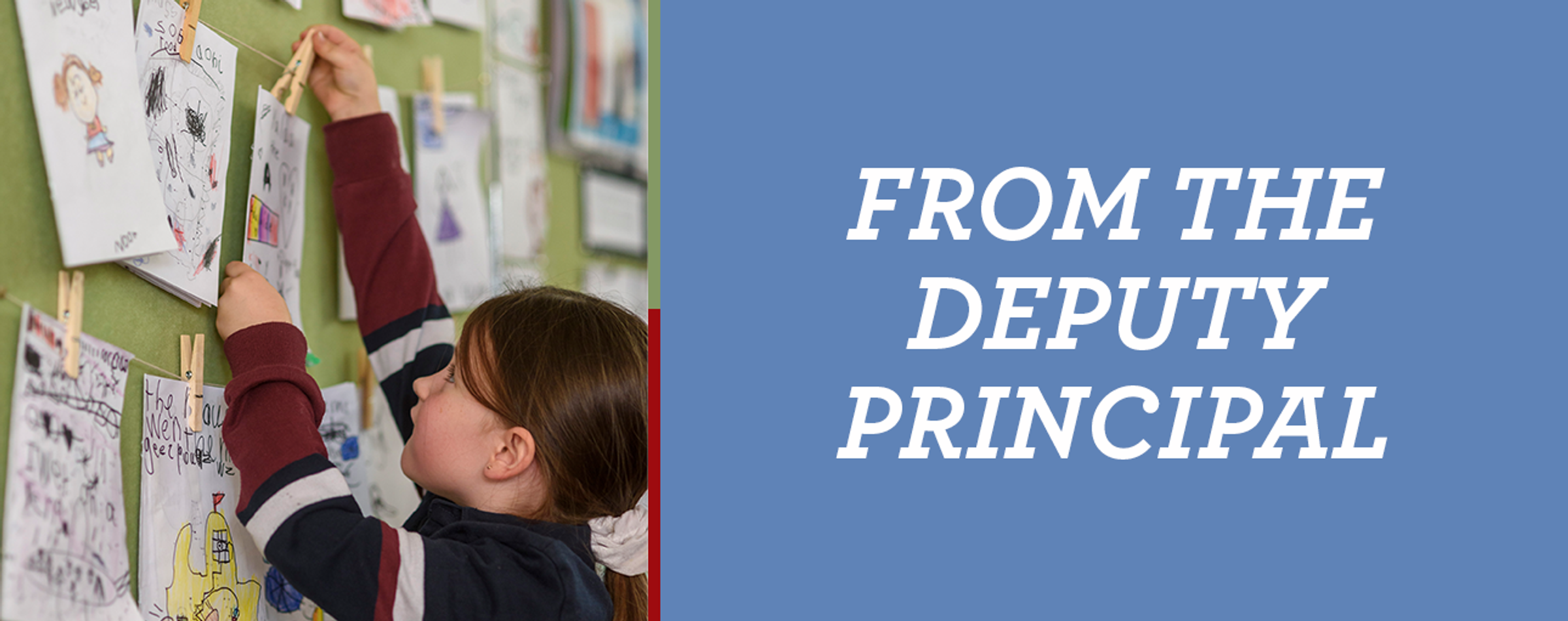From the Deputy Principal
Jason Fay

From the Deputy Principal
Jason Fay
Let’s try a little quiz.
Arrange these events in chronological order?
Chances are that you may not be able to do this off the top of your head correctly. If you attempt this little quiz, your first instinct may be to look the answers up or even ask someone for help.
For my generation, this was a typical classroom activity. Here’s today’s question or task; now let’s go to the library and see if you can complete it. The research and then the staging of the information was the task. Sound familiar? But now, let’s try a different question.
Which of these historical events had the greatest impact on Australian society?
The research bit is easy. The thinking and justifying are the real challenges. This is a simple example of how framing an open-ended question or challenge can deepen learning. Children gain a deeper appreciation of the concepts at the heart of a topic or question. Framing challenges such as this also builds vital skills and habits of learning which stay with children long after the unit of work is completed.
We all know that play is an indispensable part childhood. However, there is also science behind the importance of play as it pertains to the cognitive development of the child. 20th Century psychologist Lev Vygotsky’s theory of cognitive development hypothesized that play is an essential part of both language development and a child's understanding of the world. When a child is at play they are in in a continuous exchange of ideas either with themselves and others. Children involved in play make meaning of the world around them via "inner speech". As they wonder out loud to themselves children explore new concepts and situations and cultivate their imagination and creativity.
Through play-based education, children also learn about themselves, others and social behaviours. When teachers observe play, they can identify which knowledge and skills may need to be intentionally developed. Play serves a purpose far beyond having fun when teachers can seek to improve a child’s planning or social skills. When aspects of literacy, numeracy or other parts of the curriculum are infused into play-based scenarios, teachers can also extend and enhance familiarity and understanding with a range of topics.
Play in education is often misunderstood as too often it is directed by teachers. Play is not something you create and direct for a child. Children were born to play. They love to play. If we have to persuade them to play, it’s not play.
“Perhaps play would be more respected if we called it something like “self-motivated practice of life skills,” but that would remove the lightheartedness from it and thereby reduce its effectiveness. So, we are stuck with the paradox. We must accept play’s triviality in order to realize its profundity.” Peter Gray, Free to Learn
As we approach another cycle of NAPLAN, many commentators, ‘experts’ and politicians fear the time schools have ‘lost’ this year and how ‘far behind’ schools are due to Covid. Many schools will cram more curriculum into limited space at the expense of children’s natural learning behaviours.
I am proud to work with educators that recognise the joy in children when they play and understand the value this brings to their learning. I really wish more education experts would do the same.
Jason Fay | Deputy Principal